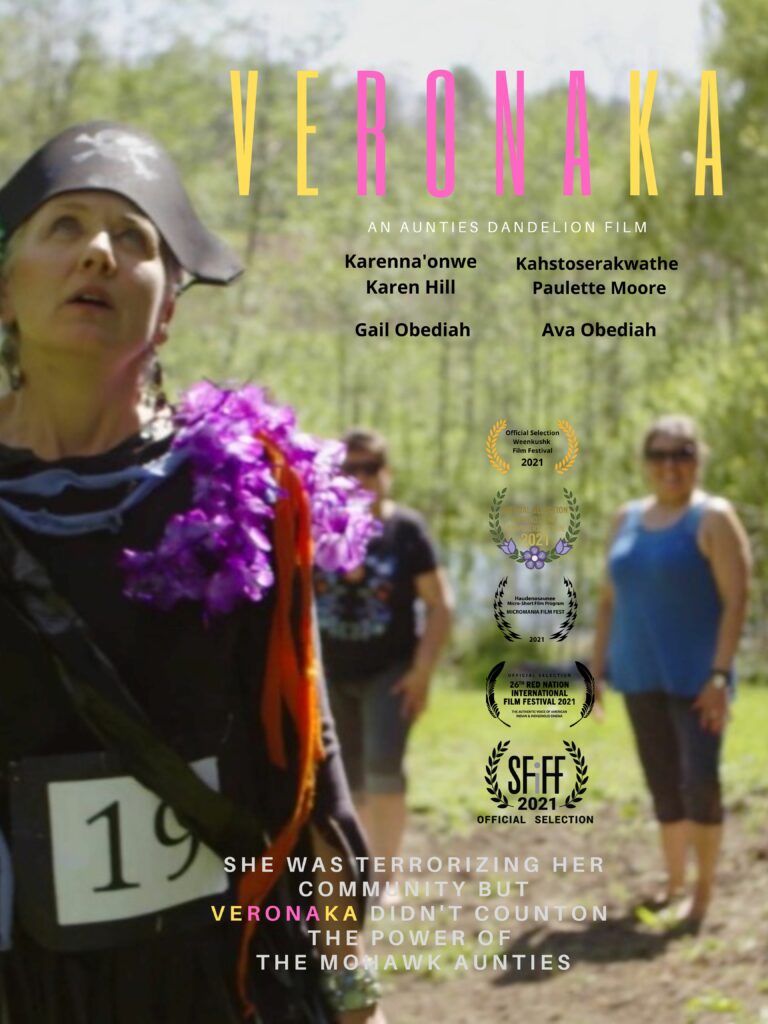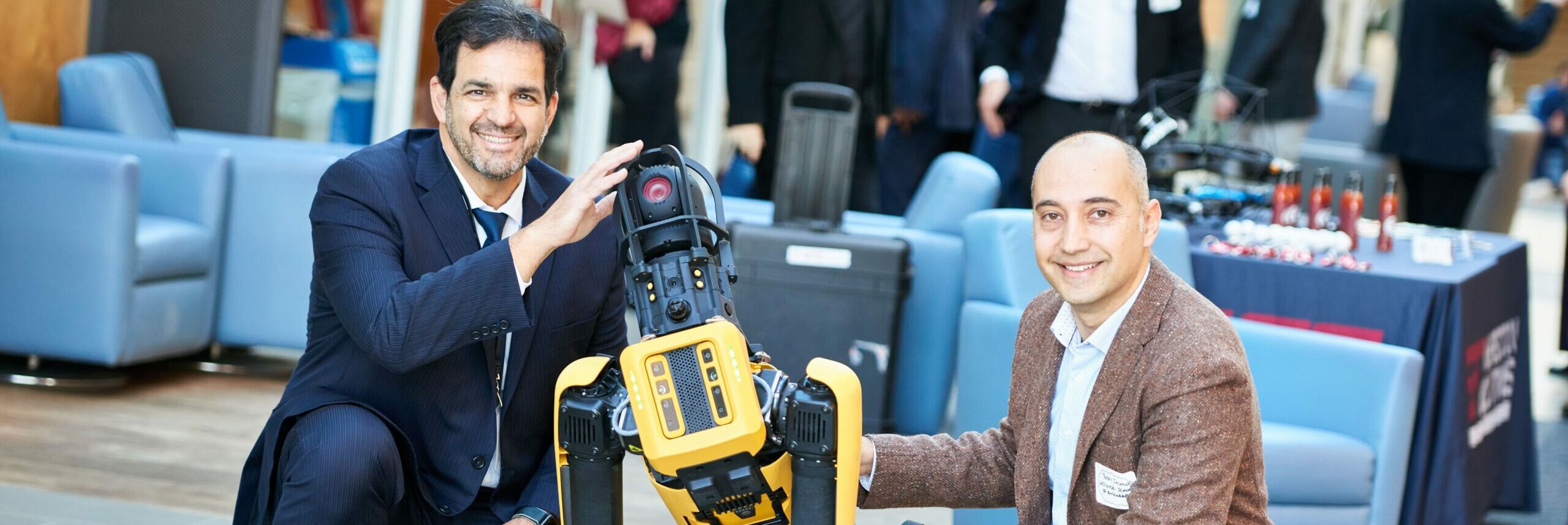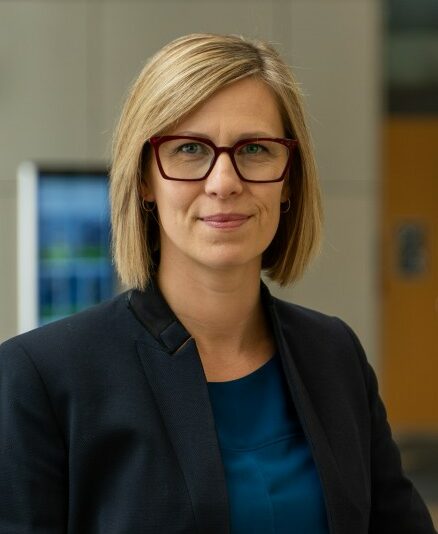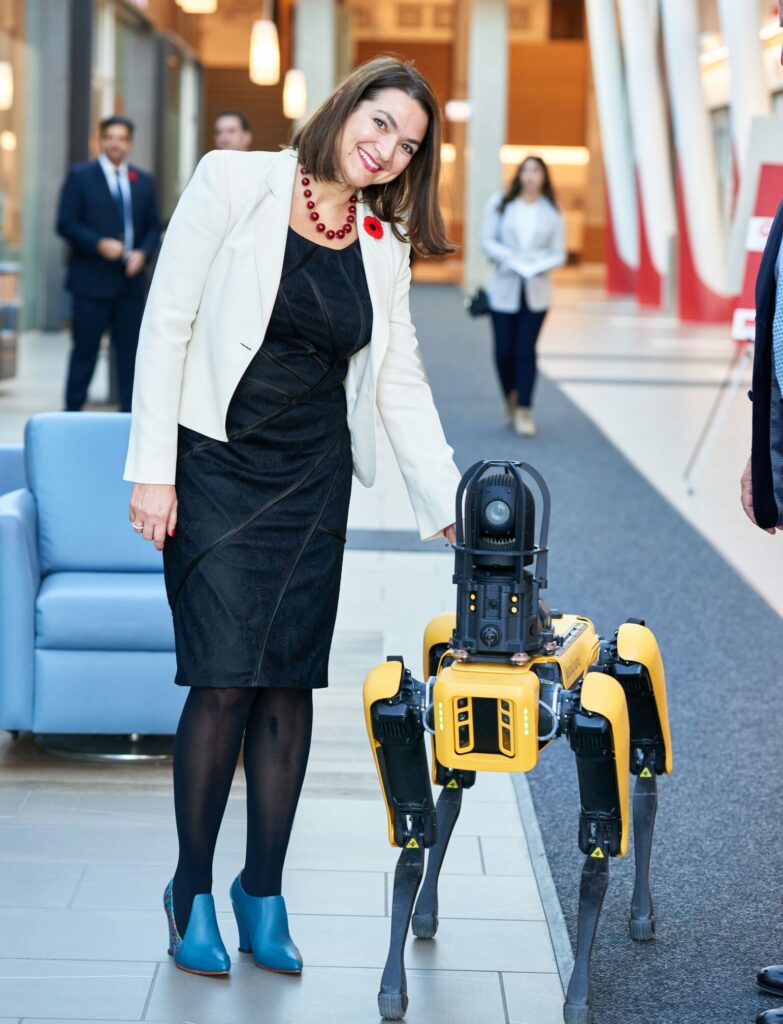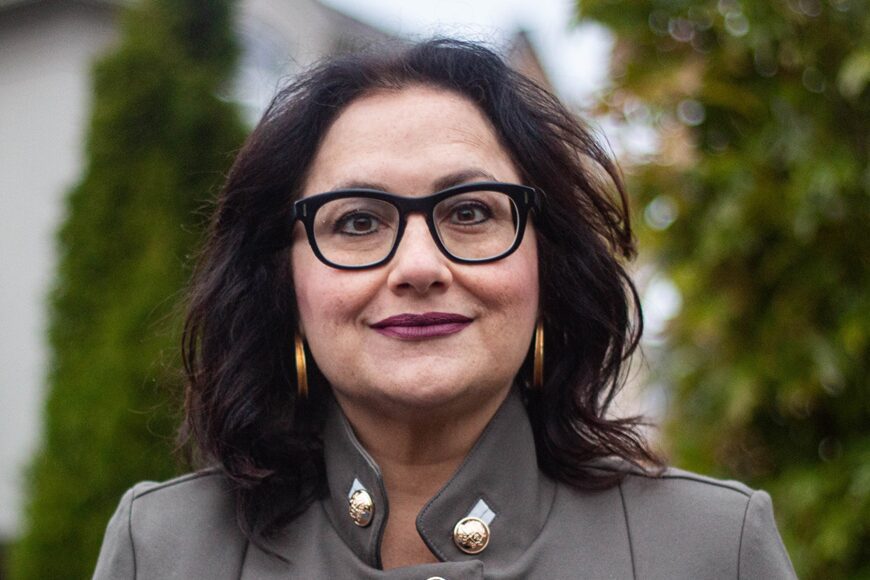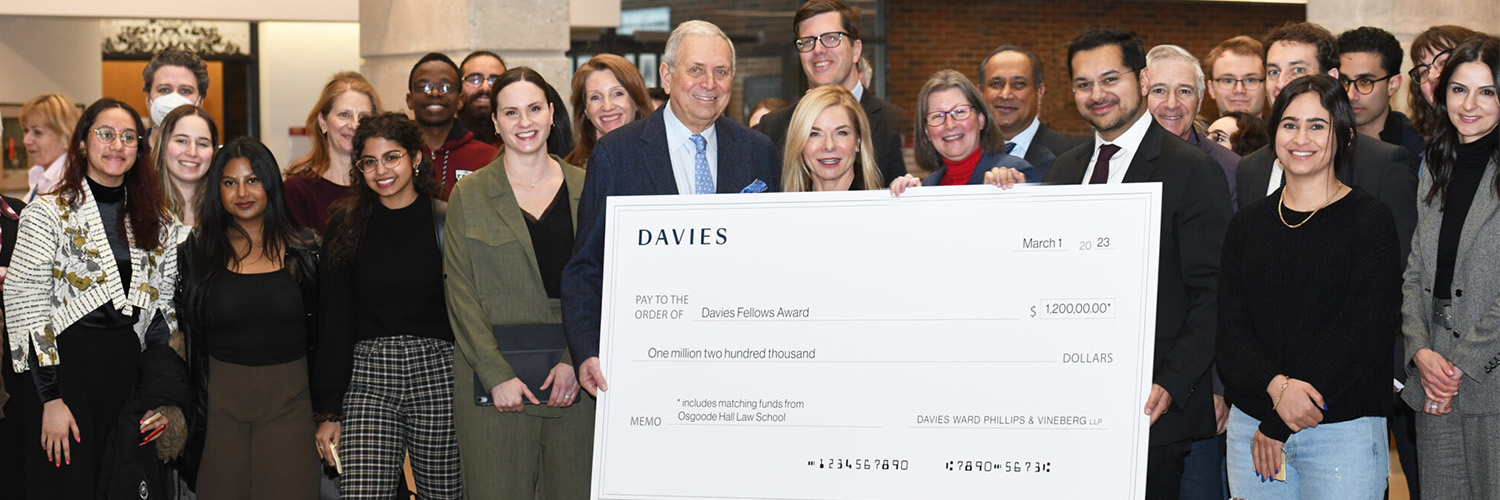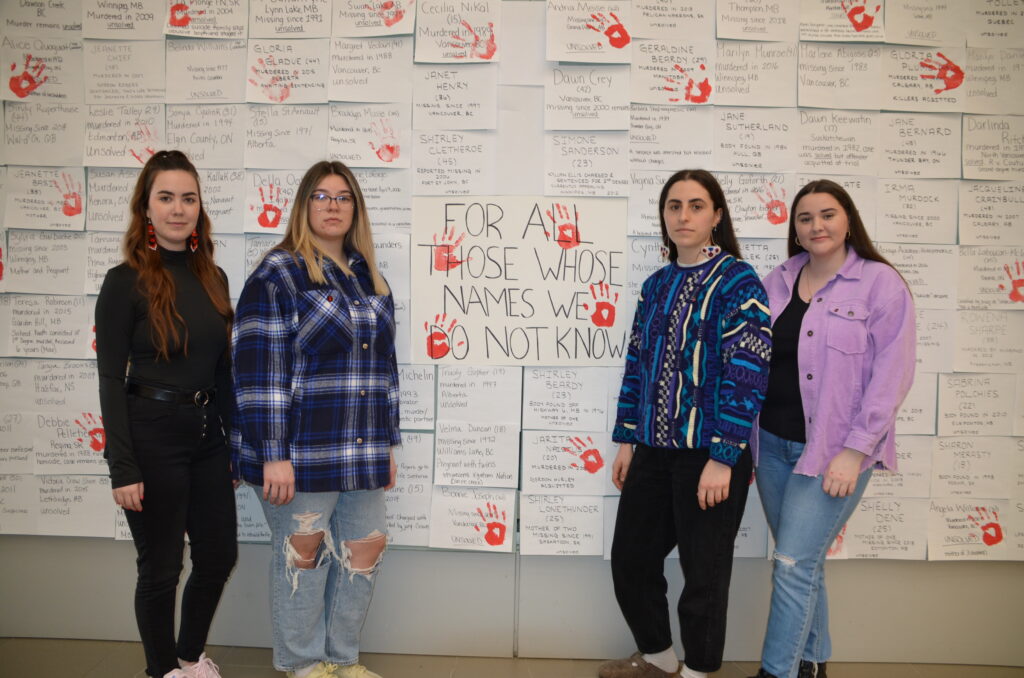La version française suit la version anglaise.
Dear colleagues,
Today marks a new level of achievement for York University research and our outstanding faculty.
We are thrilled to share with you all that York University – in partnership with Queen’s University – has been awarded a monumental grant of nearly $105.7 million from the Canada First Research Excellence Fund (CFREF). The funding from the Government of Canada is the largest single federal grant ever awarded to York and is in support of Connected Minds: Neural and Machine Systems for a Healthy, Just Society.
As a research-intensive University committed to positive change, the Connected Minds program and its successful CFREF application elevates York’s research enterprise and allows our researchers to push the boundaries of purposeful research even further.
This innovative, new research program will be led by the inaugural directorate of:
- Doug Crawford, Distinguished Research Professor, Faculty of Health, York University, Connected Minds Inaugural scientific director
- Pina D’Agostino, associate professor, Osgoode Hall Law School, York University, Connected Minds vice-director
- Gunnar Blohm, professor, School of Medicine, Queen’s University, Connected Minds vice-director
- Sean Hillier, assistant professor, Faculty of Health, York University, Connected Minds associate director
In addition to the directorate, the core Connected Minds team includes York’s Shayna Rosenbaum, James Elder, Danielle Elliott, Robert Alison and Laura Levin, as well as Catherine Donnelly from Queen’s.
This historic CFREF grant awards York University with $82.8 million and $22.8 million to Queen’s University. When combined with the contributions (including in-kind) from multi-sector partners, municipal governments and collaborating institutions, the total value of the Connected Minds project is $318.4 million, making Connected Minds the biggest York-led research program in the University’s history.
Connected Minds is a pan-University effort and brings together experts in multiple fields, including the arts, humanities, engineering, law and life sciences, located across eight York Faculties and three Queen’s Faculties. Our researchers will examine the ways in which technology is transforming society – dubbed the “techno-social collective” – and will work to balance both the potential risks and benefits for humanity.
Connected Minds will fund 35 strategic faculty hires, three new Ontario Research Chairs, as well as partner-focused seed, team, and prototyping grants, knowledge mobilization and commercialization activities, and an ambitious multi-institutional micro-credential training program with 385 trainees and cross-sector stakeholders. All activities will require an interdisciplinary participation, and projects that benefit Indigenous and other equity-deserving groups will be prioritized.
Learn more about Connected Minds here: https://yorku.ca/research/connected-minds.
Click here for York’s official announcement: https://www.yorku.ca/news/2023/04/28/york-university-leads-318-4m-first-of-kind-inclusive-next-gen-technology-research-initiative/.
On behalf of the entire University, we want to express the community’s pride and excitement for today’s news and what this will mean for the future of York research.
Congratulations to the Connected Minds leadership team and for everyone involved in bringing about this significant milestone.
It’s a new era for research and innovation at York University.
Sincerely,
Rhonda Lenton
President and Vice-Chancellor
Amir Asif
Vice-President Research and Innovation
L’Université York reçoit la plus importante subvention jamais accordée à la recherche
Chers collègues, chères collègues,
Aujourd’hui, un nouveau palier a été franchi par la recherche à l’Université York et notre remarquable corps professoral.
Nous sommes ravis de vous annoncer que l’Université York, en partenariat avec l’Université Queen’s, a reçu une subvention colossale d’environ 105,7 millions de dollars du Fonds d’excellence en recherche Apogée Canada (FERAC). Le financement du gouvernement du Canada est la plus importante subvention fédérale jamais accordée à York; elle appuie le projet appelé Esprits branchés /Connected Minds : Systèmes neuronaux et mécaniques pour une société saine et juste.
En tant qu’université à forte intensité de recherche engagée en faveur de changements positifs, le programme Esprits branchés/Connected Minds et sa candidature fructueuse auprès du FERAC rehaussent l’effort de recherche à York et permettent à nos chercheurs de repousser encore plus loin les limites de la recherche ciblée.
Ce nouveau programme de recherche innovant sera dirigé par l’équipe de direction inaugurale du programme de recherche :
- Doug Crawford, professeur distingué de la Faculté de la santé, Université York, directeur scientifique inaugural d’Esprits branchés/Connected Minds
- Pina D’Agostino, professeure agrégée de l’École de droit Osgoode Hall, Université York, vice-directrice associée d’Esprits branchés/Connected Minds
- Gunnar Blohm, professeur de l’École de médecine de l’Université Queen’s, vice-directeur associé d’Esprits branchés/Connected Minds
- Sean Hillier, professeur adjoint de la Faculté de la santé, Université York, directeur associé d’Esprits branchés/Connected Minds
En plus de la direction, l’équipe principale d’Esprits branchés/Connected Minds comprend Shayna Rosenbaum, James Elder, Danielle Elliott, Robert Alison et Laura Levin de York, ainsi que Catherine Donnelly de Queen’s.
Cette subvention historique du FERAC attribue 82,8 millions de dollars à l’Université York et 22,8 millions de dollars à l’Université Queen’s. Si l’on ajoute les contributions (y compris en nature) des partenaires multisectoriels, des administrations municipales et des institutions collaboratrices, la valeur totale du projet Esprits branchés/Connected Minds s’élève à 318,4 millions de dollars, ce qui en fait le plus grand programme de recherche dirigé par York dans l’histoire de l’Université.
Esprits branchés/Connected Minds est une initiative panuniversitaire qui rassemble des experts dans de nombreux domaines, notamment les arts, les sciences humaines, l’ingénierie, le droit et les sciences de la vie, répartis dans huit facultés de York et trois facultés de Queen. Nos chercheurs examineront la manière dont la technologie transforme la société — appelée « le collectif technosocial » — et s’efforceront d’équilibrer les risques et les avantages potentiels pour l’humanité.
Esprits branchés/Connected Minds financera le recrutement stratégique de 35 professeurs; de trois nouvelles chaires de recherche de l’Ontario; des subventions de démarrage, d’équipe et de prototypage axées sur les partenaires; des activités de mobilisation des connaissances et de commercialisation; ainsi qu’un ambitieux programme multi-institutionnel de formation aux microcrédits avec 385 postes de stagiaires et des intervenants intersectoriels. Toutes les activités nécessiteront une participation interdisciplinaire, et les projets bénéficiant aux autochtones et aux autres groupes en quête d’équité seront prioritaires.
Pour en savoir plus sur Esprits branchés/Connected Minds : https://yorku.ca/research/connected-minds.
Cliquez ici pour l’annonce officielle de York : https://www.yorku.ca/news/2023/04/28/york-university-leads-318-4m-first-of-kind-inclusive-next-gen-technology-research-initiative/.
Au nom de toute l’Université, nous tenons à exprimer la fierté et l’enthousiasme de la communauté à l’égard de l’annonce d’aujourd’hui et de ce qu’elle signifie pour l’avenir de la recherche à York.
Félicitations à l’équipe dirigeante d’Esprit branchés/Connected Minds et à toutes les personnes qui ont contribué à la réalisation de cette avancée majeure.
Une nouvelle ère commence pour la recherche et l’innovation à l’Université York.
Sincères salutations,
Rhonda Lenton
Présidente et vice-chancelière
Amir Asif
Vice-président de la recherche et de l’innovation





